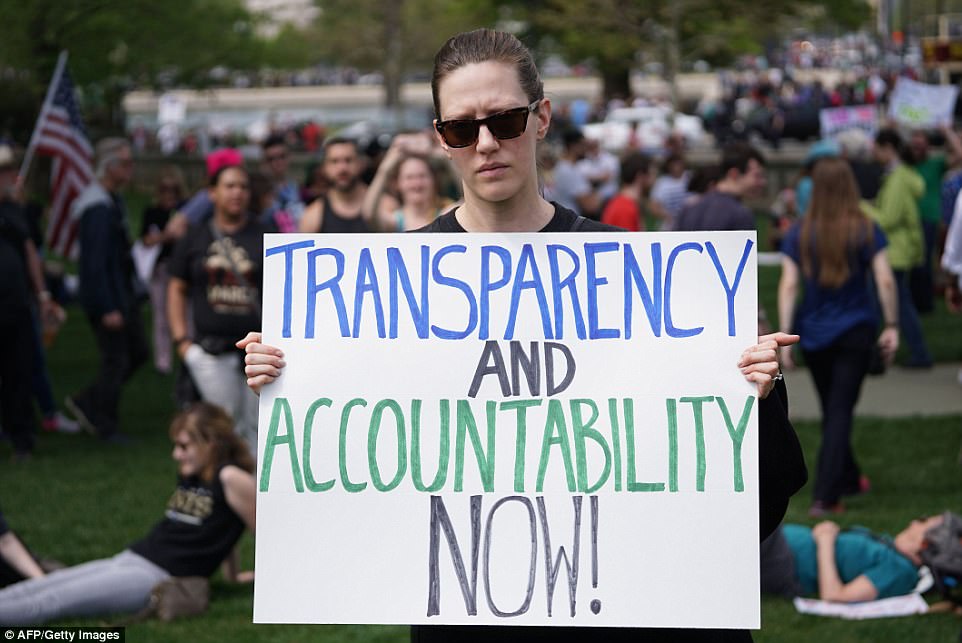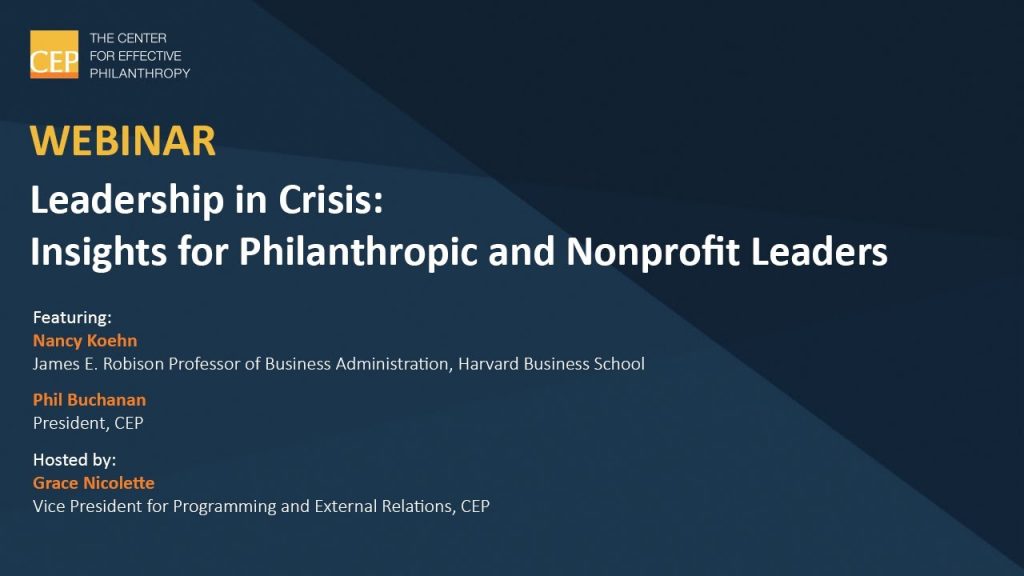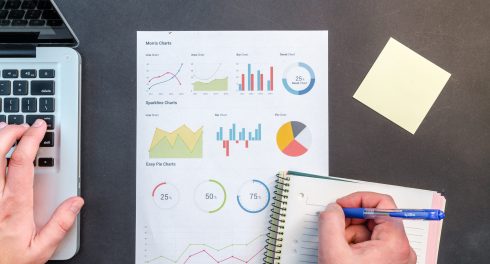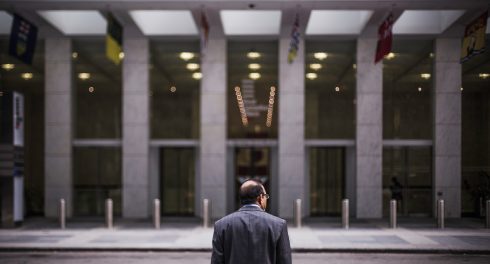Highlight
- Transparency tussles
- Wearable = Shareable
- Tracking the trackers
- Danish trendsetter?
- Not so small victories
- Working in a time of crisis – the new normal
- TAI Spotlight: Debt implications for fiscal grantees
Transparency tussles

Photo credit: AFP/ Getty Images
The World Health Organization has long emphasized the importance of transparency for accountable decision making in health emergencies and continues to reiterate the need with urgency. From the transparency community perspective, Julia Kaseru unpacks the need for transparency in the fight against COVID-19 and asks if this current crisis should prod a rethink of priorities. Steven Friedman agrees with the need to invest in transparency and government accountability to break the cycle of mistrust. Writing from the South Africa context, he says, “Governments need to develop far deeper roots into their societies if they are to meet citizens’ needs. This will be true long after the virus has been contained.”
Of course, a number of governments are taking the opposite tack and finding ways to restrict transparency, deny the public their right to information and legitimize authoritarianism. With a world distracted, veteran activist Lee Cheuk Yan flags how Hong Kong authorities have used the pandemic as a “golden opportunity” to arrest democracy protestors. Yet, some are finding new ways to voice their views – read what led to disrupted sales of the popular online game ‘Animal Crossing: New Horizons’ in China.
Taking a step back, kudos to USAID for recognizing the need for a holistic response to the crisis and laying out potential responses, including in the areas of governance, rule of law, human rights, elections and political transitions, inclusion, civil society, and media. Marta Martinelli and Bram Dijkstra make some similar points as they urge the EU to recognize the structural divide revealed by COVID-19 and build an EU-Africa strategy focused on social and economy justice, democratic resilience, digital transformation, and fight against climate change.
Wearable = Shareable
Personal technology responses to the pandemic seem to appear on an hourly basis – see developments in the US, UK, China, Norway, Singapore, and how companies use apps to track coronavirus spread. John Naughton explains that we need to be smarter to avoid putting our privacy on parade. Human Right advocates like Sophie Richardson, China director at Human Rights Watch, and the team at Amnesty International criticize the use of surveillance apps, while Albert Fox Cahn and Alyssa Domino report that the efficacy of stepped up surveillance efforts from South Korea to Israel are unclear.
So, how can we defeat the epidemic while preserving our privacy, liberty, and way of life? Edward Felten and Adam Klein, chairman of the Privacy and Civil Liberties Oversight Board believe new data tools can help us fight the coronavirus as long as we don’t forget the lessons learned from post-9/11 counterterrorism programs and the effort to balance security effort and civil liberties. In similar vein, Nani Jansen Reventlow cautions that biosurveillance measures aren’t necessarily temporary, hence the need to carefully scrutinize them and make sure states are complying with international human rights law.
Tracking the trackers

Photo credit: AFP/ Getty Images
Thanks to Todd Tucker for his thread pulling together various COVID-19 related trackers, including some we featured last week. Data repositories continue to grow as new initiatives are deployed around the world to address the spread of COVID-19 and its secondary effects. The Organisation for Economic Development and Co-operation and Development (OECD) and GOVLAB have issued a call for evidence on the release and use of open government data in response to the outbreak and share a tool to help manage the complexity of preparing a data sharing agreement given the urgency of the global pandemic.
Looking beyond the health emergency to insights from other ways to leverage private data for public good, a group of researchers draw on a China example to highlight how fine-grained data from satellites, mobile phone data and other sources can help us understand environmental inequality and socio-economic disparities while noting the importance of safeguarding data privacy and security.
Scientists at the MIT Media Lab and Universidad Carlos III de Madrid also used multiple big data sources to examine inequality – creating the Atlas of Inequality that visualizes the rates of segregation in public spaces and introduces the idea of a “place inequality” metric. Interesting to get a further sense of place inequality by seeing the latest mapping of where the world’s ultra-rich live.
Danish trendsetter?
Can firms reconcile tax avoidance and accepting government handouts? Experience suggests, without qualm, unless legislated against. So, here’s hoping that other countries follow Denmark’s lead in insisting that companies that take government bailout funds do not make use of tax havens within their corporate structures.

Photo credit: Michael Fleshman/flickr/cc
The financial fallout of the crisis is also raising heat over tax structures elsewhere in Europe. Tax Justice Network argue that the EU can’t rebuild its economy if Netherlands continues to be a tax haven. Those countries hit hardest by the pandemic (Italy and Spain) are paying attention – see the launch of Tax Justice Italia.
Yet, the victims of tax avoidance and poor planning don’t have a voice. Naomi Fowler shares a personal tale of an individual who helped their billionaire boss dodge taxes, only to be laid off during COVID19 while their boss benefited from bailouts. The main message the anonymous author draws? “The offshore world has no loyalty to anyone. Blow the whistle, expose the fraud, (and) let’s build a better system. It could be you next.”
So, what are tax administrations doing to support taxpayers and their government? Tax administrators around the world, including the African Tax Administration Forum (ATAF) and OECD discussed how to raise revenue during these difficult times and what taxation measures governments could consider in the economic fallout. ATAF also published a guidance on what African revenue authorities can do to help raise taxes and manage the COVID-19 fall out as the African Development Bank announce a $10bn coronavirus rescue package.
The OECD Forum on Tax Administration has compiled Tax Administration Responses to COVID19, collecting responses in the areas of additional time for tax affairs, quicker refunds, changes in audit policy, as well as services and communications. Separately, it provides recommendations on how tax policy can aid governments in dealing with the COVID-19 crisis.
Not so small victories
A significant week for debt campaigners as the IMF cancels $215 million of debt payments for 25 countries over the next six months while the G7 suspends debt collection for 77 countries through the end of the year due to the coronavirus pandemic. Campaigners urge that debt be cancelled and worry about what private lenders will agree to. They are all-the-more important as the privately issued debt is a much bigger share of the debt burden that in the past debt crisis.
Encouraging signs on a different front, too, as the World Bank Group president offers reassurances of a “robust, responsive and independent” Compliance Advisor Ombudsman for its private lending arm, the IFC, and new requirements that financial intermediaries detail projects for which they are using IFC funds.
Turning to where things might go wrong, four experts weigh in on how the global health crisis will affect trends in transnational kleptocracy given global attention is trained elsewhere. Meanwhile, the Organized Crime and Corruption Reporting Project details how a group of corrupt Angolan elites funneled hundreds of millions of dollars into Europe through their own private banking network via Portugal. They also reveal a dizzying layer cake of corruption, surrounding a shipment of Coronavirus PPE in Romania led by an ex-public official.

Essential Listening: Leadership in Crisis: Insights for Philanthropic and Nonprofit Leaders
What does good leadership in crisis look like? In this time of unprecedented challenge related to COVID-19, what can we learn from the great leaders of the past? Speakers explored these and other key questions about leading in a time of crisis, with a particular focus on the challenges facing those in philanthropy and nonprofits right now.
Working in a time of crisis – the new normal

Photo credit: Justworks Inc
Last week, we considered learning in a time of crisis. This week we turn to lessons on carrying out capacity development amid a pandemic courtesy of the Natural Resource Governance Institute. In support of working across borders, Design, Monitoring, and Evaluation for Peace has launched Connections, a virtual platform that will link peace builders globally and help them develop working relationships. As we transition our teams and projects to remote, Eugene Eric Kim reminds us of the need to use our online collaboration, not only for work-related purposes but for relationship building.
Kudos to the UK government for protecting some funds for work internationally, but U.K. NGOs worry £20 million allocated to them by the government to work in 15 countries is drastically below what is needed. Meanwhile, the toll on nonprofits finances around the world is set to cause layoffs and closures. Steady leadership from the board can perhaps avert the worst situations. This includes providing mentoring and guidance for those laid-off in a tightened job market. Wondering how to talk to donors during this hard time? Have a look at these tips and strategies for strengthening funder-grantee relationships, the type of support innovators need, and when fundraisers can talk about estate gifts during the pandemic. (Oh, and don’t forget TAI’s smarter grantmaking report on what conversations to have with funders.)
Ryan Schlegel takes a look back on grantmaking during the great recession and offers lessons/imperatives funders must learn from 2008 if they want to make real, transformative changes during this COVID-19 crisis. Grant Oliphant posits, “It is not enough for philanthropy to devote its attention solely to the reaction phase of this pandemic. Yes, it’s reassuring to look for and support the helpers, but our job is to look deeper and further, at what it means to be a caring society.” Carmen Rojas, incoming President of the Marguerite Casey Foundation, would likely agree, urging philanthropy to support those who have been pursuing just democratic and economic change; create new grantmaking norms; and forge partnerships with others whose wealth does not depend on sustaining current systems of inequality and injustice.
TAI Spotlight: Debt implications for fiscal grantees
Debt implications for fiscal grantees | Transparency and Accountability Initiative
The coronavirus pandemic is already having profound fiscal impacts, not least in Sub-Saharan Africa. We just published the African CSO’s Capacity Support Scoping for Public Debt Work report which analyses summarizes the views of 32 TAI member grantees and documents how debt factors into their current programming and how it might factor into future strategies.
Philanthropy fault lines | MacArthur Foundation
MacArthur President John Palfrey and Woods Fund Chicago President Michelle Morales discuss some of the challenges their foundations are facing in responding to COVID-19, including handling racial and ethnical disparities, trade-offs of quickly getting money out the door, and the promise of philanthropy in this moment.
UK leads global fight to prevent the second wave of coronavirus | DFID
International Development Secretary Anne-Marie Trevelyan announced a £200 million package to prevent a second wave of coronavirus coming to the UK by slowing its spread in the most vulnerable countries. This brings the total amount of UK aid committed to the global fight against coronavirus to £744 million.
OSF’s emergency response to COVID-19 | Open Society Foundations
The Open Society Foundations announced an investment of $130 million to combat the devastation in the wake of coronavirus—focusing on communities too often left out and left back by government policy. Don’t miss Open Society Foundation’s President, Patrick Gaspard’s article on the erosion of civil rights in the face of COVID-19 important lessons from the past, especially how crises like the current one have served as a convenient pretext for authoritarian regimes to normalize their tyrannical impulses.
COVID-19 fund for low-wage workers | Ford Foundation
Ford Foundation joins Open Society Foundations and five other foundations to launch the Families & Workers Fund to support low-wage workers and families and to support policy and advocacy efforts aimed at their long-term economic recovery.
CALL
- Job postings at Ford Foundation – Ongoing
Job postings at Luminate – Ongoing
BetterTogether Challenge for innovators – Ongoing
Job postings at Democracy fund – Ongoing - Free Digital Security Training – Ongoing
- Open Road Alliance Charitable Grant and Loan to organizations responding directly to COVID-19 – Ongoing
- Pulitzer Center Coronavirus news collaboration challenge – (Applications will be reviewed on a first-come, rolling basis)
- Call for research proposals: Tax and development in South Asia – Proposal accepted on a rolling basis
- PWYP strategic communications & campaigns manager – April 24, 2020 (Location: London, UK or Brussels, Belgium)
- The Boston Globe Spotlight Investigative Journalism Fellowship – April 24, 2020
- Research Officer for quantitative work on Rwanda and Ethiopia at ICTD – April 25, 2020
- Call for Applications: Making a Difference Awards (highlights and promotes how the best of research has made a significant difference to Charities and Not-For-Profits) – April 27, 2020
- Getty Images inclusion scholarship – April 27, 2020
- Co-Impact systems change grants (round three) – April 30, 2020
Request for proposal: Independent public interest journalism – April 30, 2020
Call for suggestions on humanitarian and development data forum agenda – May 2020 - Allard Prize photography competition – May 1, 2020
- Grants fund investigative journalism – May 4, 2020
- Creatives needed for exciting animation project – May 10, 2020
- Call for Projects Paris Peace Forum 2020 – May 12, 2020
- Research opportunity – Enabling and inspiring duty-bearers to act with integrity – May 17, 2020
- Research opportunity – Achieving positive solutions to citizen-identified problems with service delivery – May 17, 2020
- Media integrity contest for South Africans – May 19, 2020
- Summer school for journalists open for Russian citizens – May 20, 2020
- Call for applications: Intensive anti-corruption training for future leaders – May 20, 2020
- Lead Researcher at ICTD DIGITAX programme – May 24, 2020
- Policy and engagement consultant at ICTD DIGITAX programme – May 24, 2020
- Proposal submission for the 2020 Summer Evaluation Institute – June 7-10, 2020
Marielle Franco Award for feminist essays 2020 – June 16, 2020 - IBM call for Code COVID-19 Global Challenge – July 31, 2020
- Amartya Sen essay contest 2020: Illicit financial flows – August 31, 2020
Call for submissions to SSIR Series: Social change in an era of extreme polarization – Last Thursday of every month until early 2021
CALENDAR
Please double check the websites for these events to make sure they are still happening – most likely they are not, though some may now be reconfigured for virtual participation.
- Transparency International: 19th International Anti-Corruption Conference – (Postponed)
- Global Technology Governance Summit – April 21-22, 2020 (San Francisco, United States of America)
Shaping the Future Forum 2020 – April 22 – 23, 2020 (Washington, DC) - Webinar: How to deal with COVID-19 and data – 22 April 2020, 9 AM EDT
- Open Contracting Community Call: U.S. municipal procurement in the era of COVID-19 – April 23, 1 PM ET
- Webinar: Listening and learning from nonprofit partners during disasters – (23 April 2020, 2PM EDT)
- Virtual Office Hour – Managing change in (rapidly) changing times (Every Thursday at 2pm ET through April 23)
- British Expertise International Awards 2020 – April 23, 2020 (Kensington, United Kingdom)
- 3ie London Evidence Week Conference 2020 – April 23, 2020 (London, UK)
Personal Democracy Forum CEE 2020 – April 23-25, 2020 (Gdansk, Poland)
2020 International Symposium on Online Journalism (ISOJ) – April 24-25, 2020 (Austin, United States of America) - Webinar: Big Data, AI and Pandemics – 28 April, 2020 (12PM-1PM EST)
Dart Center webinar series on COVID-19 reporting (Running till 30 April) - 2020 Collective Impact Virtual Convening – May 6 -8 2020 (12:00 CDT)
- Global Digital Development Forum May 6, 2020 6AM-10P GMT
- Frontiers of Social Innovation: People, Power & Resources: The Redistribution Wave – May 12-14, 2020 (Stanford University, California, USA)
- Fundraising in a crisis: focus on donors most likely to give —14 May 2020
2020 Media Impact Forum (funder-only gathering) – June 2, 2020 (New York, United States of America)
Human Rights Litigation Summer School at Berlin, Germany – June 8-12, 2020
Women and Girls Africa Summit – June 9-12, 2020 (Durban, South Africa)
RightsCon 2020 – June 9-12, 2020 (San Jose, Costa Rica)
2020 Neighborhood Funders Group National Convening (philanthropy support to grassroots power building) – June 29 – July 1, 2020 (Washington, DC) - WE EMpower UN SDG Challenge 2020 – September 18 – 27, 2020 (New York City, United States of America)
- The 2020 Journalism Funders Gathering (funder-only gathering) – October 6-7, 2020 (Philadelphia, United States of America)
Humanitarian and Development Data Forum – November 2-4, 2020 (Chambery, France)
International Open Data Conference –November 18-20, 2020 (Nairobi, Kenya).


